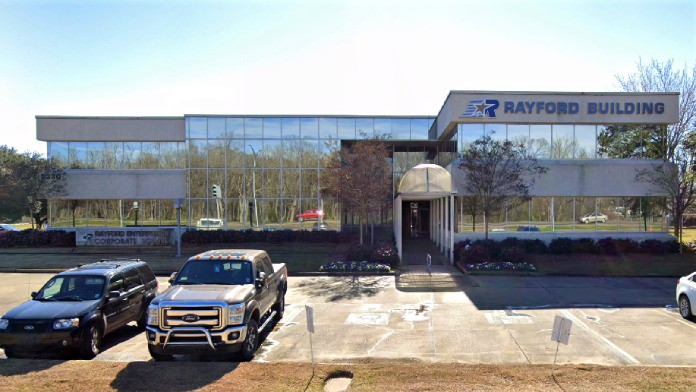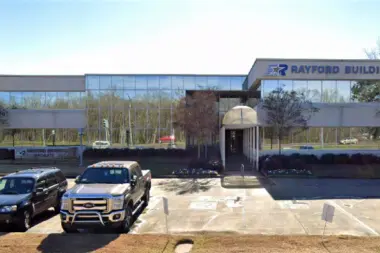About Edgefield – Outpatient Services
Facility Overview
Rehab Score
Gallery


Other Forms of Payment
Self-pay involves paying for treatment out of your own pocket. You can use savings or credit, get a personal loan, or receive help from family and friends to fund your treatment. If you don't have insurance or your insurance plan doesn't cover a specific program, self-pay can help ensure you still get the care you need.
Private insurance refers to any kind of healthcare coverage that isn't from the state or federal government. This includes individual and family plans offered by an employer or purchased from the Insurance Marketplace. Every plan will have different requirements and out of pocket costs so be sure to get the full details before you start treatment.
Medicaid is a state based program that helps lower-income individuals and families pay for healthcare. Medicaid covers addiction treatment so those enrolled can use their coverage to pay for rehab. When a program accepts Medicaid the client often pays very little or nothing out of their own pocket.
Addiction Treatments
Levels of Care
In their Intensive Outpatient Treatment Program (IOP) clients participate in a group therapy session with a counselor three nights a week. This nightly program is particularly convenient to those clients who wish to continue working while still receiving treatment. The client will meet with the counselor and develop an individualized treatment plan. While in IOP, clients will also attend AA/NA meetings in the community. If a client is in IOP following inpatient treatment, the client’s adherence to their aftercare plan is monitored and changes are made as needed. Clients are encouraged and assisted with integration into the recovery community.
Outpatient Programs (OP) are for those seeking mental rehab or drug rehab, but who also stay at home every night. The main difference between outpatient treatment (OP) and intensive outpatient treatment (IOP) lies in the amount of hours the patient spends at the facility. Most of the time an outpatient program is designed for someone who has completed an inpatient stay and is looking to continue their growth in recovery. Outpatient is not meant to be the starting point, it is commonly referred to as aftercare.
Intervention services helps family or friends of addicts stage an intervention, which is a meeting in which loved ones share their concerns and attempt to get an addict into treatment. Professional intervention specialists can help loved ones organize, gather, and communicate with an addict. They can guide intervention participants in describing the damage the addict's behavior is causing and that outside help is necessary to address the addiction. The ideal outcome of an intervention is for the addict to go to rehab and get the help they need.
12-step programs are addiction recovery models based on Alcoholics Anonymous (AA). A number of substance abuse programs (including some drug and alcohol rehab centers) use the 12 steps as a basis for treatment. Beginning steps involve admitting powerlessness over the addiction and creating a spiritual basis for recovery. Edgefield Recovery Center is based on the 12 Step Principles of Alcoholic Anonymous and Narcotics Anonymous and works to integrate its clients into outside community supports such as AA and NA.
At times, some addicts become complacent and place their recovery on the “back burner”. When this occurs, the person in recovery is at risk for relapse. It is extremely important for the recovering addict to learn the signs and symptoms of relapse and to develop a plan of action to prevent relapse from occurring. At ERC they assist their patients in learning and recognizing the signs and symptoms of relapse. They teach not only the “tools” of recovery, but the “tools” of relapse prevention as well.
Treatments
The goal of treatment for alcoholism is abstinence. Those with poor social support, poor motivation, or psychiatric disorders tend to relapse within a few years of treatment. For these people, success is measured by longer periods of abstinence, reduced use of alcohol, better health, and improved social functioning. Recovery and Maintenance are usually based on 12 step programs and AA meetings.
While each drug rehab in Louisiana offers unique elements, recovery support often follows a similar pattern. Detox is followed by inpatient and/or outpatient care, then aftercare support is provided once the participant completes the initial program.
Many of those suffering from addiction also suffer from mental or emotional illnesses like schizophrenia, bipolar disorder, depression, or anxiety disorders. Rehab and other substance abuse facilities treating those with a dual diagnosis or co-occurring disorder administer psychiatric treatment to address the person's mental health issue in addition to drug and alcohol rehabilitation.
Opioid rehabs specialize in supporting those recovering from opioid addiction. They treat those suffering from addiction to illegal opioids like heroin, as well as prescription drugs like oxycodone. These centers typically combine both physical as well as mental and emotional support to help stop addiction. Physical support often includes medical detox and subsequent medical support (including medication), and mental support includes in-depth therapy to address the underlying causes of addiction.
Substance rehabs focus on helping individuals recover from substance abuse, including alcohol and drug addiction (both illegal and prescription drugs). They often include the opportunity to engage in both individual as well as group therapy.
Programs
Adult rehab programs include therapies tailored to each client's specific needs, goals, and recovery progress. They are tailored to the specific challenges adult clients may face, including family and work pressures and commitments. From inpatient and residential treatment to various levels of outpatient services, there are many options available. Some facilities also help adults work through co-occurring conditions, like anxiety, that can accompany addiction.
Young adulthood can be an exciting, yet difficult, time of transition. Individuals in their late teens to mid-20s face unique stressors related to school, jobs, families, and social circles, which can lead to a rise in substance use. Rehab centers with dedicated young adult programs will include activities and amenities that cater to this age group, with an emphasis on specialized counseling, peer socialization, and ongoing aftercare.
Clinical Services
Cognitive Behavioral Therapy (CBT) is a therapy modality that focuses on the relationship between one's thoughts, feelings, and behaviors. It is used to establish and allow for healthy responses to thoughts and feelings (instead of unhealthy responses, like using drugs or alcohol). CBT has been proven effective for recovering addicts of all kinds, and is used to strengthen a patient's own self-awareness and ability to self-regulate. CBT allows individuals to monitor their own emotional state, become more adept at communicating with others, and manage stress without needing to engage in substance abuse.
Addiction does not just have a damaging effect upon the addict. It also severely damages other members of the addict's family. The objective of a Family Therapy Program is to mutually heal the chemically dependent person as well as the members of the family. The program educates the family on the causes and the effects of addiction. It also provides the family members with coping mechanisms in dealing with their addict and with suggestion in how they can lead a better, contented life themselves.
In group treatment, their goal is to help patients to recognize and discard their defense systems. This will enable the patient to acquire a more accurate self-image. Seeing oneself through the eyes of their peers presents the patient with an image of himself/herself that is not attainable through an introspective process. In group patients are taught to share his/her feelings and thoughts. Defenses are often broken down by the truth delivered in a loving and caring way. Most chemical dependent persons are badly out of touch with their feelings and are hard wired to avoid pain. In group, one often discovers that they are not alone.
Individual therapy helps chemically dependent individuals explore and develop effective coping mechanisms to deal with the problems associated with their alcohol and drug use. It offers an opportunity to explore how negative thought processes can fuel addictive behavior to assist the individual in identifying ways to begin to change these patterns. Individual therapy also allows further exploration of other barriers to recovery.
Life skills trainings involve all the skills a person must have in order to function successfully in the world. These include time management, career guidance, money management, and effective communication. Truly successful addiction recovery is based on the ability to not only live substance-free, but to thrive. Life skills teaches the practical necessities of functioning in society, which sets clients up for success in life, and therefore sobriety.
Trauma therapy addresses traumatic incidents from a client's past that are likely affecting their present-day experience. Trauma is often one of the primary triggers and potential causes of addiction, and can stem from child sexual abuse, domestic violence, having a parent with a mental illness, losing one or both parents at a young age, teenage or adult sexual assault, or any number of other factors. The purpose of trauma therapy is to allow a patient to process trauma and move through and past it, with the help of trained and compassionate mental health professionals.
Amenities
-
Private Setting
Staff & Accreditations
Staff
Robert Rayford Jr
CEO
Felicia Powers
CFO
Bobby Rayford, LAC, LMSW
Administrator
Joan Brunson, M.D.
Medical Director & Addictionologist
Accreditations

The Joint Commission, formerly known as JCAHO, is a nonprofit organization that accredits rehab organizations and programs. Founded in 1951, the Joint Commision's mission is to improve the quality of patient care and demonstrating the quality of patient care.
Joint Commission Accreditation: Yes
Contact Information
2230 South Macarthur Drive
Suite 4
Alexandria, LA 71301